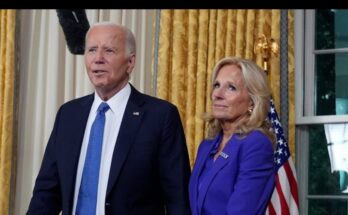The Department of Justice has filed charges against a former U.S. Agency for International Development (USAID) staffer accused of creating a fake company to siphon off federal coronavirus relief funds for personal use.
The Allegations
According to federal prosecutors, Yusuf Akoll, who served as a Senior Procurement Contract Specialist at USAID, orchestrated the scheme between March and August 2021. Court filings allege that Akoll falsified records and made fraudulent claims that allowed him to secure two Paycheck Protection Program (PPP) loans totaling about $16,666.
The loans were obtained through a company called Naagode Consulting LLC, which Akoll registered in Virginia in late 2020. To meet eligibility requirements, he allegedly backdated the company’s founding to January 2020 and falsely claimed the business had generated $40,000 in revenue the previous year. In reality, the company had no income and was not operational before the pandemic.
A Possible Plea Deal
The charges were filed through an “information” — a type of filing that typically indicates a plea agreement is under negotiation. If convicted, Akoll faces penalties for making false statements and defrauding a federal relief program.
Oversight Failures Exposed
The case highlights how vulnerable pandemic-era relief programs were to abuse. The Small Business Administration (SBA), which managed the PPP, approved Akoll’s fraudulent claims despite inconsistencies that could have been easily flagged. Simple checks — such as verifying corporate registration dates with state records or comparing reported income with federal tax filings — would have revealed the fraud.
Instead, the SBA adopted a “pay and chase” model, prioritizing speed in disbursing funds to struggling businesses, even at the cost of higher fraud risks. Critics argue this approach created fertile ground for misuse of taxpayer dollars.
Broader Context
USAID itself has faced growing scrutiny over financial management and accountability. Prior to Akoll’s case, the agency had already been plagued by criticism for its difficulty tracking foreign aid allocations. These concerns contributed to the decision to restructure USAID, with many of its functions absorbed by the State Department in a bid to tighten oversight.
Akoll, meanwhile, had direct access to the management of large sums of taxpayer money for international projects, raising deeper questions about the safeguards in place for those entrusted with such responsibilities.
Conclusion
The DOJ’s case against Akoll underscores two urgent lessons from the pandemic: the ease with which relief funds could be exploited and the critical need for stronger oversight mechanisms in federal agencies. While the sum in this case may seem small compared to other fraud scandals, it reflects a broader pattern of weaknesses in the government’s pandemic response and the continuing challenge of balancing speed with accountability.



